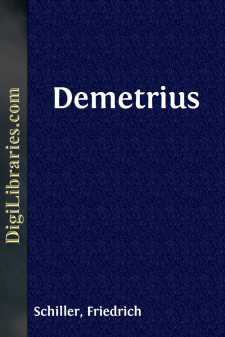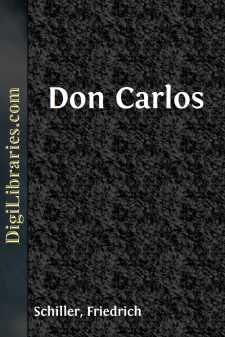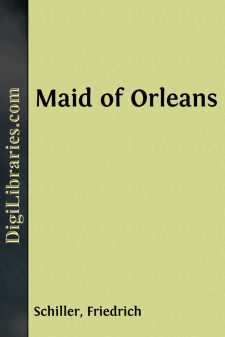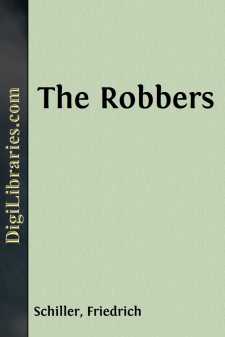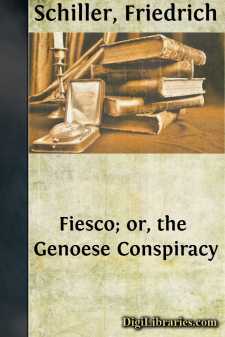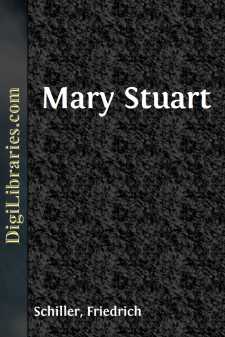Categories
- Antiques & Collectibles 13
- Architecture 36
- Art 48
- Bibles 22
- Biography & Autobiography 816
- Body, Mind & Spirit 145
- Business & Economics 28
- Children's Books 17
- Children's Fiction 14
- Computers 4
- Cooking 94
- Crafts & Hobbies 4
- Drama 346
- Education 58
- Family & Relationships 59
- Fiction 11834
- Foreign Language Study 3
- Games 19
- Gardening 17
- Health & Fitness 34
- History 1378
- House & Home 1
- Humor 147
- Juvenile Fiction 1873
- Juvenile Nonfiction 202
- Language Arts & Disciplines 89
- Law 16
- Literary Collections 686
- Literary Criticism 179
- Mathematics 13
- Medical 41
- Music 40
- Nature 179
- Non-Classifiable 1768
- Performing Arts 7
- Periodicals 1453
- Philosophy 66
- Photography 2
- Poetry 897
- Political Science 203
- Psychology 45
- Reference 154
- Religion 516
- Science 126
- Self-Help 85
- Social Science 82
- Sports & Recreation 34
- Study Aids 3
- Technology & Engineering 59
- Transportation 23
- Travel 463
- True Crime 29
Friedrich Schiller
Friedrich Schiller (1759–1805) was a seminal German playwright, poet, and philosopher, known for his profound influence on German literature and drama. His notable works include "The Robbers," "William Tell," and "Ode to Joy," the latter of which was famously set to music by Beethoven in his Ninth Symphony. Schiller's writings often explored themes of freedom, justice, and the struggle against tyranny, making him a pivotal figure in the Sturm und Drang movement and German Romanticism.
Author's Books:
Sort by:
INTRODUCTION. The special subject of the greater part of the letters and essays of Schiller contained in this volume is Aesthetics; and before passing to any remarks on his treatment of the subject it will be useful to offer a few observations on the nature of this topic, and on its treatment by the philosophical spirit of different ages. First, then, aesthetics has for its object the vast realm of the...
more...
SCENE I. A spacious hall, supported on columns, with entrances on both sides;at the back of the stage a large folding-door leading to a chapel. DONNA ISABELLA in mourning; the ELDERS OF MESSINA. ISABELLA.Forth from my silent chamber's deep recesses,Gray Fathers of the State, unwillinglyI come; and, shrinking from your gaze, upliftThe veil that shades my widowed brows: the lightAnd glory of my days...
more...
SCENE I. THE DIET AT CRACOW. On the rising of the curtain the Polish Diet is discovered, seatedin the great senate hall. On a raised platform, elevated by threesteps, and surmounted by a canopy, is the imperial throne, theescutcheons of Poland and Lithuania suspended on each side. The KINGseated upon the throne; on his right and left hand his ten royalofficers standing on the platform. Below the...
more...
SCENE I. The Royal Gardens in Aranjuez. CARLOS and DOMINGO. DOMINGO.Our pleasant sojourn in AranjuezIs over now, and yet your highness quitsThese joyous scenes no happier than before.Our visit hath been fruitless. Oh, my prince,Break this mysterious and gloomy silence!Open your heart to your own father's heart!A monarch never can too dearly buyThe peace of his own son—his only son.[CARLOS looks...
more...
SCENE I. Sutlers' tents—in front, a Slop-shop. Soldiers of all colors anduniforms thronging about. Tables all filled. Croats and Hulanscooking at a fire. Sutler-woman serving out wine. Soldier-boysthrowing dice on a drum-head. Singing heard from the tent. Enter a Peasant and his Son. SON.Father, I fear it will come to harm,So let us be off from this soldier swarm;But boist'rous mates will...
more...
SCENE I. MILLER—MRS. MILLER. MILLER (walking quickly up and down the room). Once for all! The affair is becoming serious. My daughter and the baron will soon be the town-talk—my house lose its character—the president will get wind of it, and—the short and long of the matter is, I'll show the younker the door. MRS MILLER. You did not entice him to your house—did not thrust your daughter...
more...
SCENE I. THIBAUT D'ARC. His Three Daughters. Three young Shepherds,their Suitors. THIBAUT.Ay, my good neighbors! we at least to-dayAre Frenchmen still, free citizens and lordsOf the old soil which our forefathers tilled.Who knows whom we to-morrow must obey?For England her triumphal banner wavesFrom every wall: the blooming fields of FranceAre trampled down beneath her chargers' hoofs;Paris...
more...
Now first translated into English. This play is to be regarded merely as a dramatic narrative in which, for the purpose of tracing out the innermost workings of the soul, advantage has been taken of the dramatic method, without otherwise conforming to the stringent rules of theatrical composition, or seeking the dubious advantage of stage adaptation. It must be admitted as somewhat inconsistent that...
more...
ACT I.SCENE I.A Saloon in FIESCO'S House. The distant sound of dancing andmusic is heard. LEONORA, masked, and attended by ROSA and ARABELLA, enters hastily. LEONORA (tears off her mask). No more! Not another word! 'Tis as clear as day! (Throwing herself in a chair.) This quite overcomes me—— ARABELLA. My lady! LEONORA (rising.) What, before my eyes! with a notorious coquette! In presence...
more...
SCENE I. A common apartment in the Castle of Fotheringay. HANNAH KENNEDY, contending violently with PAULET, who is aboutto break open a closet; DRURY with an iron crown. KENNEDY.How now, sir? what fresh outrage have we here?Back from that cabinet! PAULET.Whence came the jewel?I know 'twas from an upper chamber thrown;And you would bribe the gardener with your trinkets.A curse on woman's...
more...




